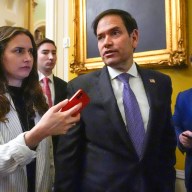WASHINGTON (Reuters) – The U.S. Federal Deposit Insurance Corporation (FDIC) on Thursday said the thousands of banks it supervises should notify the regulator of any crypto-related activities they have or are planning.
Citing potential systemic risks from certain crypto assets and activities, the FDIC said any firm considering dabbling in crypto should tell the agency of its plans, and any institution already involved in such activities should “promptly” notify the FDIC, the regulator said in a statement.
“Crypto-related activities may pose significant safety and soundness risks, as well as financial stability and consumer protection concerns,” the FDIC said, noting evolving credit, liquidity, pricing and operational risks that are not yet fully understood.
The request comes as U.S. banking regulators reckon with the increasing popularity of cryptocurrencies. U.S. President Joe Biden last month told government agencies to assess the risks and benefits of various cryptocurrency issues, a move seen as a stark acknowledgement of the potential consequences of the growing importance of digital assets.
A disruption in crypto-asset transactions or activities could result in a “run” on a firm’s financial assets and consumers may be confused about crypto assets offered by, through or connection with their institutions, the FDIC said on Thursday.
Prior to jumping into a crypto-related activity, the FDIC-supervised institution should notify the regulator, providing details on the planned activity and proposed timeline. The agency said it plans to review the information for safety and soundness, financial stability and consumer protections.
(Reporting by Chris Prentice; editing by Bernard Orr)

















